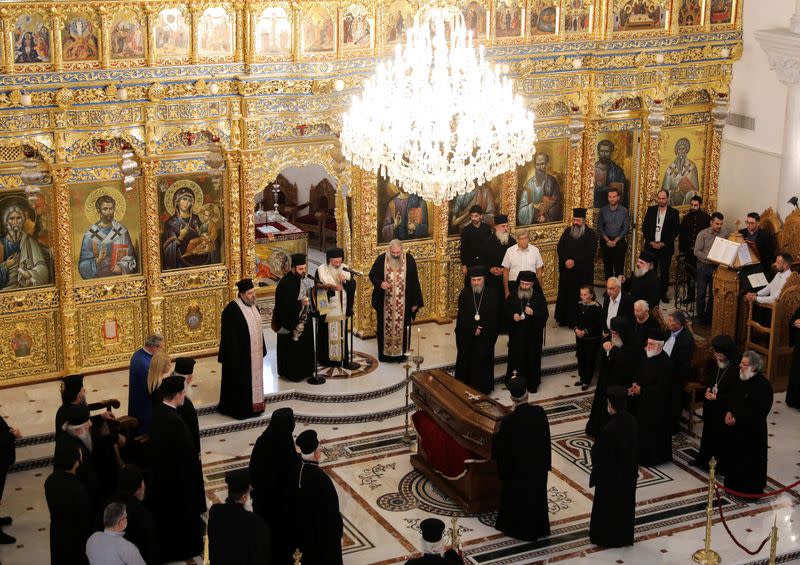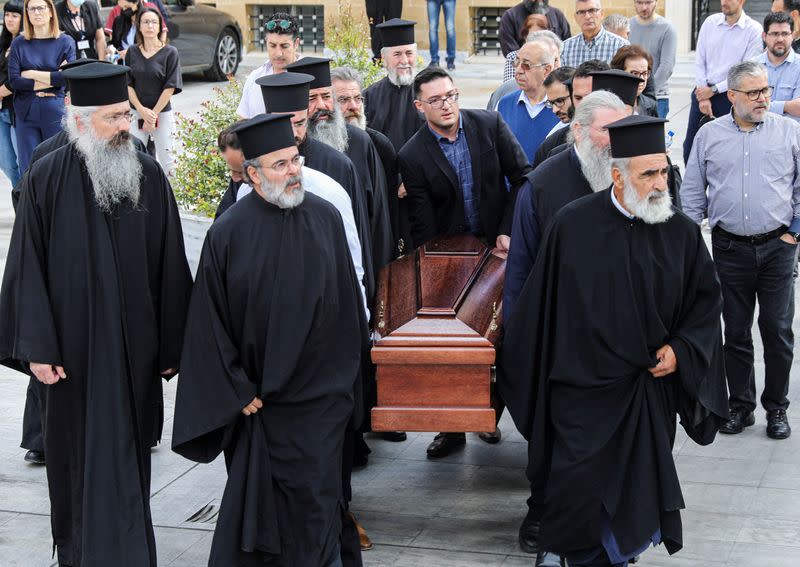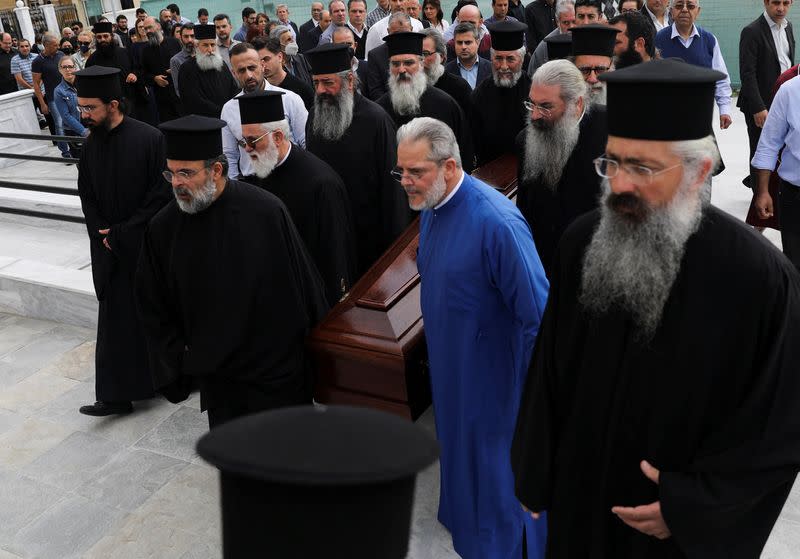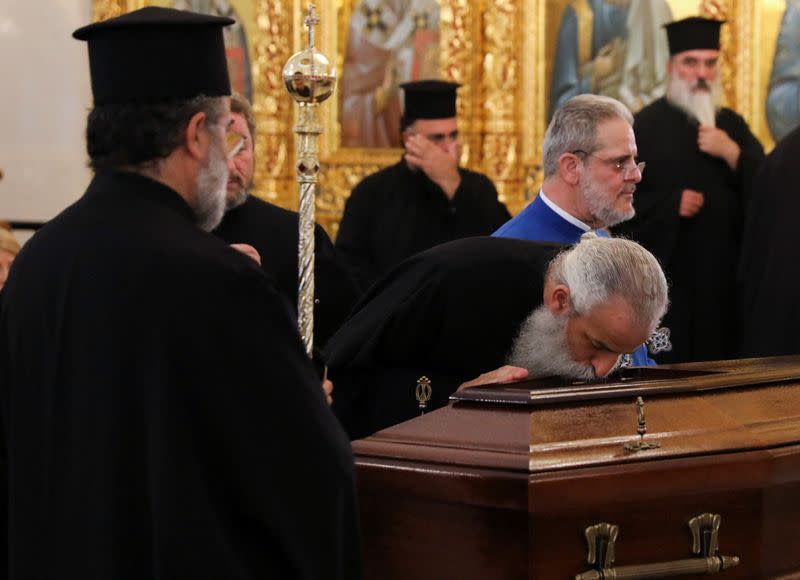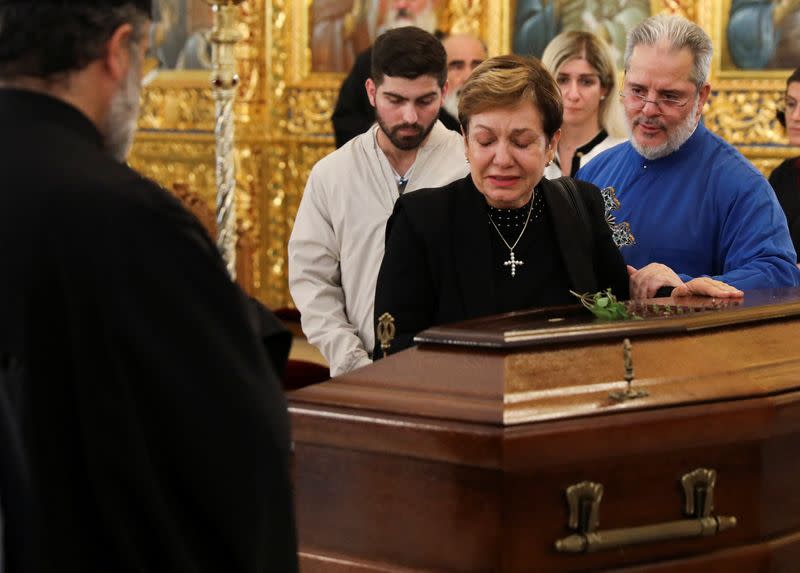Head of Cyprus Church, Archbishop Chrysostomos, dies aged 81
- Oops!Something went wrong.Please try again later.
- Oops!Something went wrong.Please try again later.
- Oops!Something went wrong.Please try again later.
By Michele Kambas
NICOSIA (Reuters) - The head of Cyprus' dominant Orthodox Church, Archbishop Chrysostomos II, died on Monday, his doctors said. He was 81.
A forceful character who faced down pro-Russian elements in one of the world's oldest churches, Chrysostomos was among Orthodox leaders to recognise the Ukrainian Church's independence after it broke from Moscow in 2020.
The Church of Cyprus, an independent branch of the Eastern Orthodox Church, traces its lineage back to Barnabas, one of Christ's first followers.
The archbishop's funeral will be held on Nov. 12. in the presence of Ecumenical Patriarch Bartholomew, head of an estimated 300 million Orthodox Christians worldwide.
The Cypriot government declared a period of national mourning until the funeral, with flags at half staff.
Chrysostomos, who was elected archbishop in 2006, had been critical of Russian President Vladimir Putin's decision to invade Ukraine.
"Mr Putin can go to church, he can take communion, but at the same time he kills. Is that his Orthodoxy?" he said in an interview with the Cyprus Broadcasting Corporation this year.
The ruling body of the Cypriot Orthodox Church, the Holy Synod, agreed by a majority to recognise the independence of the Church in Ukraine, though some voted against, threatening a rift.
Steeped in history, Cypriot archbishops still enjoy privileges bestowed by a Byzantine emperor in the fifth century. They sign documents in cinnabar red, hold an imperial staff and wear purple under their vestments.
In a statement, Patriarch Bartholomew said he was "deeply moved" by Chrysostomos' death.
Diagnosed with cancer four years ago, Chrysostomos took a dim view of clerics resisting vaccination to the coronavirus pandemic. He threatened to fire those speaking out against the vaccination.
He was also fiercely critical of Turkey, which invaded the northern third of Cyprus in 1974 after a brief Greek-inspired coup, yet participated in a group of religious leaders seeking rapprochement on the war-split island.
Outspoken and frequently compared more to a businessman than a cleric, Chrysostomos managed to outmanoeuvre rivals to secure election in 2006.
"We are not angels," he was quoted as telling a daily newspaper on the day of his enthronement.
(Reporting by Michele Kambas in Nicosia; Editing by Gareth Jones and Matthew Lewis)
